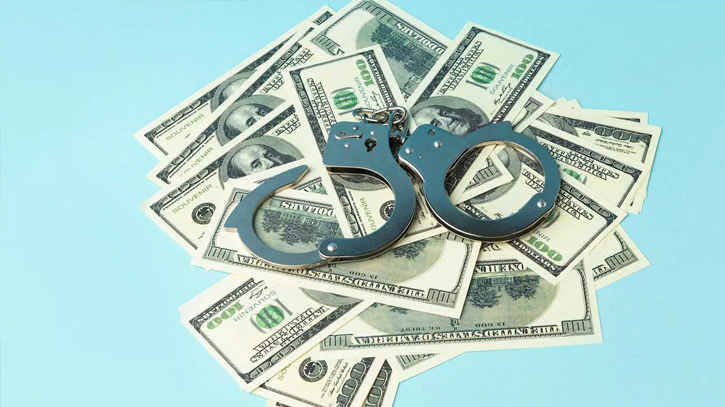
Photo: Collected
Despite the interim government’s strong commitment to repatriating money laundered out of Bangladesh, experts say that the process will be highly challenging and complex.
A recent press statement from the Chief Adviser’s Office highlighted the government and Bangladesh Bank’s significant efforts to restructure the country’s banking sector, with a particular focus on recovering assets embezzled by corrupt individuals both locally and abroad.
Officials confirmed that these laundered funds are a key target in a broader initiative to bring the financial sector up to international standards.
The statement revealed that unscrupulous businessmen and influential figures have siphoned off vast sums from the banking sector, laundering these funds through fraudulent activities. "Preliminary estimates suggest the total embezzled amount could exceed Tk 1 lakh crore, though the exact figure is still being determined," it said.
However, Dr. Debapriya Bhattacharya, head of the White Paper Committee on the state of the country's economy, on Thursday (29 August) acknowledged the daunting nature of the task. This is a very complex process, he said after the committee’s first meeting. "Tracking this money is not a simple matter at all."
He explained that if the money is located, legal action must first be initiated under the host country’s laws. "After obtaining a decree from the host country, it must then be presented in the destination country,” he said.
Only after securing a decree from the destination country can the assets purchased with laundered money be frozen and sold to repatriate the funds.
Dr. Debapriya also highlighted the need for solid, admissible documentation to support these legal efforts, stressing that identifying assets purchased with laundered money is a significant challenge.
He noted that Bangladesh lacks the necessary treaties with many countries to facilitate the recovery of these funds and that the country does not have enough skilled lawyers and financial analysts to handle such cases effectively.
Another prominent economist, who requested anonymity, said that the Attorney General’s office must first establish the case of money laundering before sending a request to the country where the funds were smuggled. "This is not a political issue and should be approached objectively," he said. "It requires serious preparedness; otherwise, it risks being dismissed as mere political rhetoric."
He outlined three critical aspects that need to be addressed: previous experiences, the capacity of the Attorney General’s office, and the involvement of foreign missions in international legal processes. "All three areas must be prepared before attempting to recover the smuggled money," he added.
Supreme Court Advocate, Barrister ARM Ahsanul Haq Khan, echoed these sentiments, stating that recovering the laundered money would be an extremely tough job for the government due to the many complexities involved.
Strong political will is essential to initiate the process, followed by the coordinated efforts of the Bangladesh Bank, NBR, ACC, and the Attorney General’s office, along with the Home, Finance, and Foreign ministries, he said.
He emphasized that Bangladesh would also need to secure agreements with the specific countries involved. "While the government’s move is commendable, it is a very tough and challenging task for the interim government."
To date, according to the Anti-Corruption Commission, Bangladesh has successfully recovered approximately 20.41 lakh Singapore dollars (equivalent to Tk 13 crore) in 2012, laundered by BNP Chairperson Khaleda Zia's younger son, Arafat Rahman Koko.
Messenger/Disha








